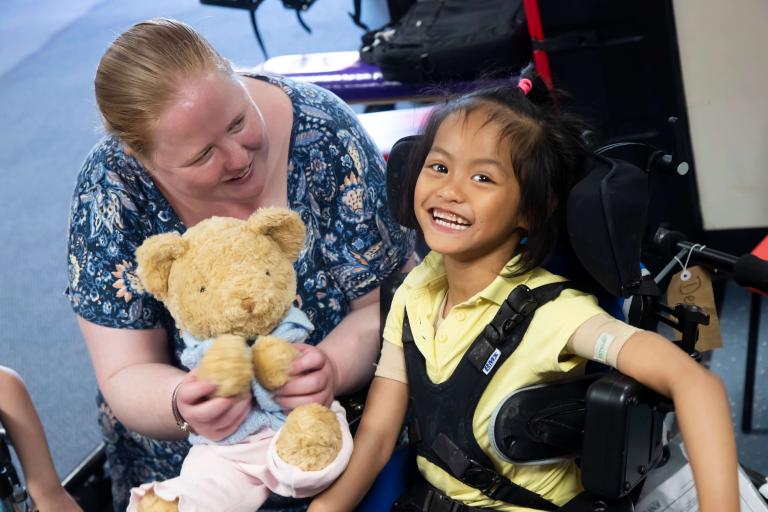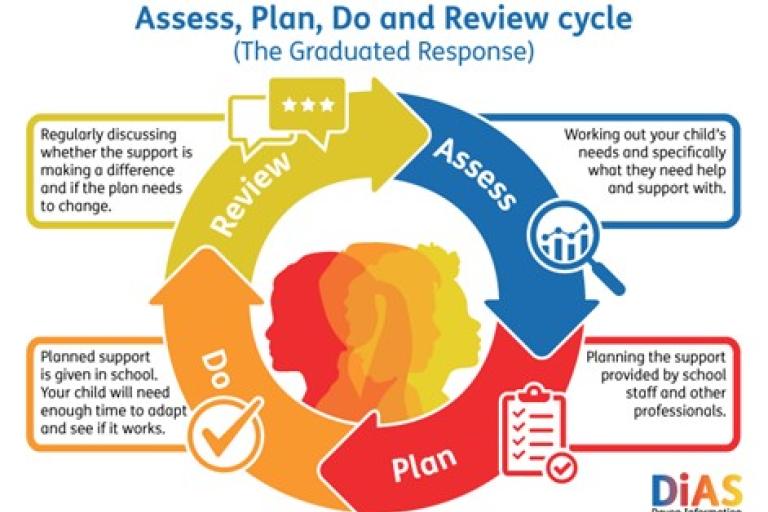All children and young people deserve the very best. They should be supported to achieve their goals and become independent.
If your child has SEND, they will get extra support. Their needs will be examined and suitable support put in place. This will be reviewed regularly so we know that it is helping.
As the person who knows your child best, your comments are highly valued and preferences respected. You will be involved every step of the way.
Quick links

What is the graduated response?
The graduated response is the extra support given to children and young people:
- aged 0-25
- who have a special educational need or disability (SEND)
- who are not making expected progress
There are 4 levels of support available. You can see descriptions of each level in the table below.
Most children and young people will have their needs met at level 1 in a mainstream school. However, support can start at any level and change based on need.
Getting the level of support right for your child is important. We will use the descriptors of Need (DoN) to help with this.
| Level | Type of support | Support available |
| 1 |
Quality First Provision Pre-school, school, and post-16 settings |
|
| 2 |
SEND Advice and Support Allocation Panel (SEND ASAP) Pre-school, school, and post-16 settings |
|
| 3 |
Additional Resourced Provision (ARP) Not including pre-school and post-16 settings |
|
| 4 |
Education, Health and Care Plan (EHCP) Pre-school, school, and post-16 settings |
Once all other support has been considered or explored. |
What is the assess, plan, do, and review cycle?
An important part of the graduated response is regularly reviewing the support given. This helps ensure it meets children and young people's needs. We use a 4-step cycle to do this:
- Assess - Working out your child's needs and specifically what they need help and support with.
- Plan - Planning the support provided by school staff and other professionals.
- Do - Planned support is given in school. Your child will need enough time to adapt and see if it works.
- Review - Regularly discussing whether the support is making a difference and if the plan needs to change.

How are students supported in mainstream schools?
The majority of students with Special Educational Needs and Disabilities (SEND) attend mainstream schools. These students have their needs met with the school's existing resources and expertise. If more support is needed, schools can ask for specialists and additional funding from Newcastle City Council.
Each school has a special educational needs coordinator (SENCO). They oversee the support at the school.
Class teachers are trained to teach a wide range of learners. This includes children with SEND. They can adapt their teaching and activities support them. This is called quality first teaching.
'High quality teaching, differentiated for individual pupils, is the starting point in responding to pupils who have or may have SEN. Additional intervention and SEN support cannot compensate for a lack of good quality teaching.'
Below are useful documents that highlight many ways your child might be supported.
If your child has SEND, they will be given an SEN support plan.
